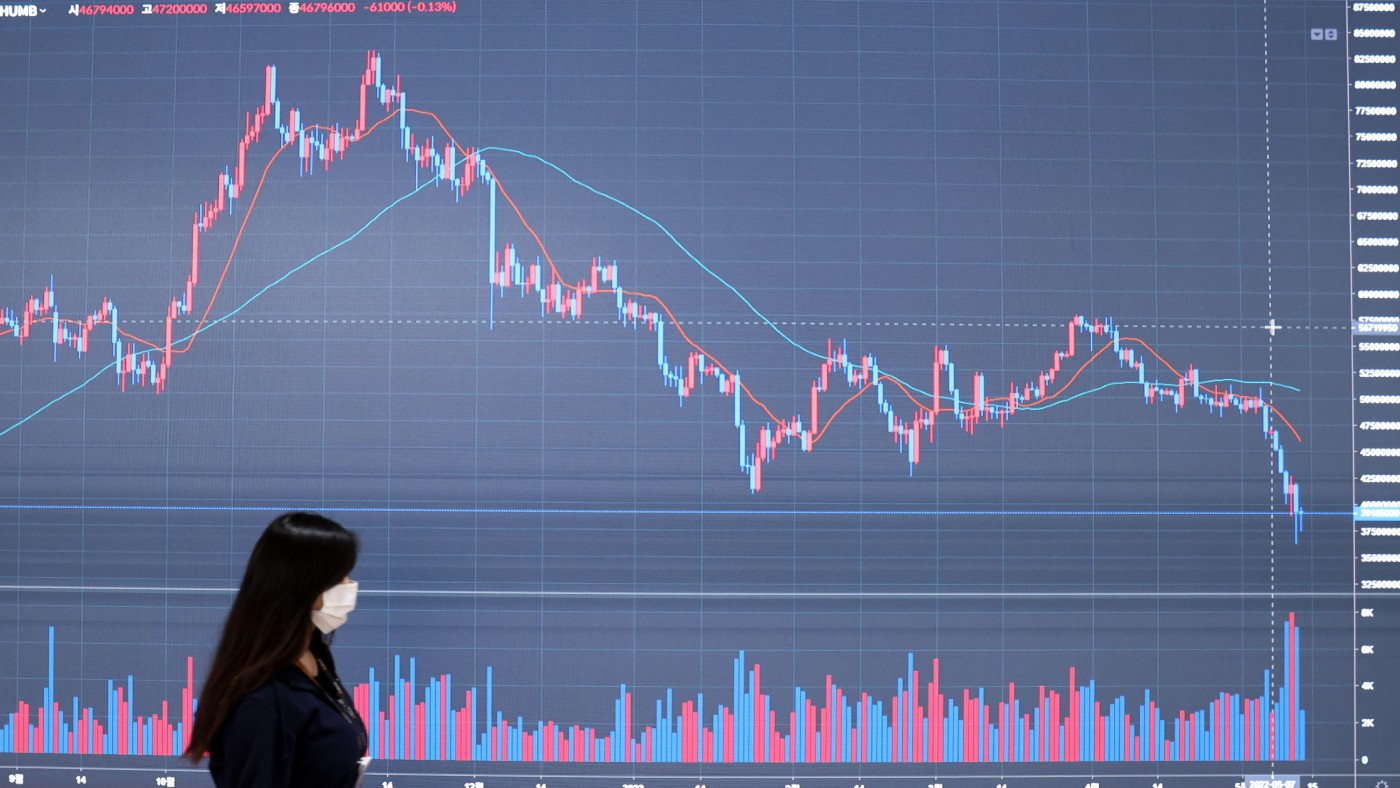What is hepeating?
‘Many women’ recognise this harmful workplace behaviour and various studies show evidence of it

A free daily email with the biggest news stories of the day – and the best features from TheWeek.com
You are now subscribed
Your newsletter sign-up was successful
With the terms “mansplaining” and “manspreading” now firmly established in modern language, another new word defining toxic male culture has entered common parlance: “hepeating”.
Defined as being “when a man appropriates your comments or ideas and then is praised for them being his own”, hepeating is a concept “many women” are probably familiar with, said Business Insider’s Lindsay Dodgson.
The phrase – a portmanteau of “he” and “repeating” – first entered public consciousness in 2017, thanks to a tweet by astronomy and physics professor Nicole Gugliucci. She explained that her friend had “coined a word… for when a woman suggests an idea and it’s ignored, but then a guy says [the] same thing and everyone loves it”.
The Week
Escape your echo chamber. Get the facts behind the news, plus analysis from multiple perspectives.

Sign up for The Week's Free Newsletters
From our morning news briefing to a weekly Good News Newsletter, get the best of The Week delivered directly to your inbox.
From our morning news briefing to a weekly Good News Newsletter, get the best of The Week delivered directly to your inbox.
Gugliucci’s tweet swiftly went viral, receiving more than 180,000 likes and 58,000 retweets to date. One Twitter user responded: “I can’t begin to tell you how much this is a thing. [It happened] at least three times this morning alone.”
Grounded in evidence
Evidence backs up the fact that hepeating is a real problem faced by women in the workplace. A study conducted by Stanford University last year, which analysed 468 economics seminars at 33 institutions in the US, found that men are more likely to interrupt women than they are other men.
And a separate study from George Washington University in 2014 found that when men spoke with women, they interrupted 33% more often than when they spoke with other men.
“The men interrupted their female conversational partners 2.1 times during a three minute conversation,” said Forbes. “That number dropped to 1.8 when they spoke to other men.”
A free daily email with the biggest news stories of the day – and the best features from TheWeek.com
Can be harmful
The effect of hepeating, like mansplaining, can be harmful, said the Spanish newspaper El Pais, explaining that the act can impact a woman’s confidence in her own ideas.
Hepeating can “override your perception” to “the point where the woman being diminished in discourse asks herself: ‘Was this idea really mine? Do I have the right to defend it or am I going to look like a bad colleague?’”, said the paper.
But this appropriation of another’s ideas is not something that only men do. “I’m gonna go ahead and coin ‘rewhite’… for every time a person of color says something and is ignored until a white person says it,” said one Twitter user, in response to Gugliucci’s tweet.
How to combat it
There is a way to deal with toxic behaviour in the workplace like hepeating, said Juliet Eilperin in The Washington Post: “amplification” – a technique that was famously used by female staffers in the Obama White House.
These women felt as though they had to “elbow” their way into important meetings and devised a strategy to help them ensure their voices were heard, explained Eilperin. “When a woman made a key point, other women would repeat it, giving credit to its author. This forced the men in the room to recognize the contribution – and denied them the chance to claim the idea as their own.”
Another technique to combat hepeating at work is through “micro-sponsorship” – or the “act of enlisting a few coworkers to advocate for you when you’ve been wronged”, said Harvard public policy professor and behavioural economist Iris Bohnet in a CNBC article.
“Become vigilant about attributing comments to the people who made them first,” she added. “Everyone, men and women, can become a micro-sponsor.”
What next?
Hepeating is not yet in the dictionary, but it’s certainly growing in popularity. According to The Guardian, the term has been introduced into an internal handbook for the staff of Ofqual, the body that regulates qualifications, exams and tests in England.
But not everyone believes it is deserving of a place in our vocabulary. Hepeating is an “ugly new made-up word that’s foolish and devoid of meaning”, said Jeremy Black, a professor of history at the University of Exeter, in an interview with the Daily Mail. “It should play no role in educational advice.”
-
 6 of the world’s most accessible destinations
6 of the world’s most accessible destinationsThe Week Recommends Experience all of Berlin, Singapore and Sydney
-
 How the FCC’s ‘equal time’ rule works
How the FCC’s ‘equal time’ rule worksIn the Spotlight The law is at the heart of the Colbert-CBS conflict
-
 What is the endgame in the DHS shutdown?
What is the endgame in the DHS shutdown?Today’s Big Question Democrats want to rein in ICE’s immigration crackdown
-
 The return of the World Economic Forum in Davos
The return of the World Economic Forum in DavosIn the Spotlight Does the annual gathering of the global business elite have any relevance, when globalisation is in swift retreat?
-
 Cryptocurrencies: luna’s death spiral
Cryptocurrencies: luna’s death spiralIn the Spotlight A vicious crash has shaken confidence in the entire crypto ecosystem
-
 Elon Musk’s Twitter takeover: trouble for Tesla?
Elon Musk’s Twitter takeover: trouble for Tesla?In the Spotlight It’s hard to find a solid business case for the billionaire’s buyout of the social media platform
-
 Disney vs. conservatives: the latest chapter of the war on ‘woke’
Disney vs. conservatives: the latest chapter of the war on ‘woke’In the Spotlight No doubt company is becoming increasingly political, in a way that rankles with many people
-
 ‘Rocking the boat’: the disgrace of P&O Ferries
‘Rocking the boat’: the disgrace of P&O FerriesIn the Spotlight Stern action is needed to counter companies who believe breaking the law is justifiable
-
 Russia and China: long battle over debt and tension in the markets
Russia and China: long battle over debt and tension in the marketsIn the Spotlight While a Russian debt default is deemed manageable, the embroilment of China may not be
-
 Russia-Ukraine war: the oil and commodities shock
Russia-Ukraine war: the oil and commodities shockIn the Spotlight Fears of shortages and soaring prices are roiling markets globally, with no let up in sight
-
 The economic war with Russia
The economic war with RussiaIn the Spotlight Will the latest round of sanctions be enough to derail the Russian war machine?